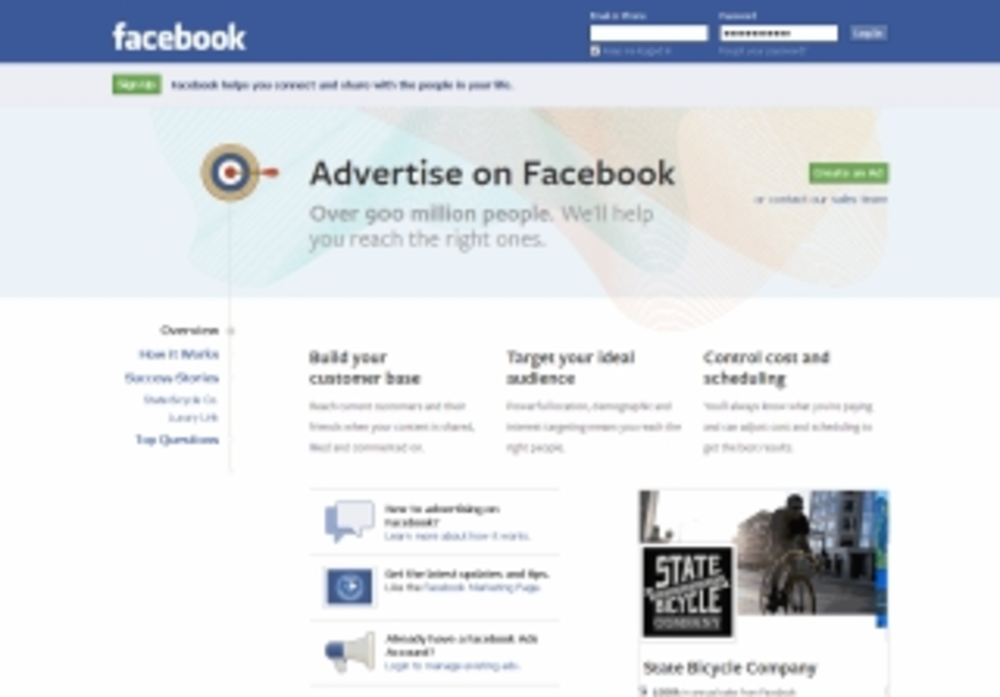Can Facebook ads work for large brands? Readers respond to the July Gloves Off question.
Yory Wurmser, director of marketing and media insights at the Direct Marketing Association, says it’s wrong to take the short view when it comes to Facebook ads. It’s a mistake to view Facebook small ads in isolation. The powerful part of the Facebook platform is the brand page and the way that [it] can use its fans to disseminate brand content to their network, a process ComScore calls “amplification.” Paid advertising on Facebook works best when viewed as a way to build a community of fans around the free media of the brand page and to augment the earned media of the conversations it generates. In other words, use Facebook ads to build a community, then to promote through the community.
Jeff Bodzewski, VP of digital experience at Aspen Marketing Services, a division of Epsilon, says making broad declarations about the efficacy of an individual channel ignores the myriad of variables that can impact results. Facebook ads are a strong complement to other paid online advertisement options we often use to help clients engage consumers, including site retargeting and banner ads. The ability to target audiences using self-indicated data across a range of variables, from demographic to interest-based, is a powerful tool for harnessing consumer online behavior and measuring performance. But targeting is only part of the equation. The creative and perceived value of clicking on the Facebook ad has to be compelling enough to influence a consumer’s behavior and distract him from the original reason he logged on. We often remind clients that their message, whether paid, earned or owned on Facebook, is competing with posting photos of family, reconnecting with college roommates and sharing the latest viral video with friends. While Facebook ads are not right in every case, our experience, much like that of Ford, Starbucks, Procter & Gamble and Target, shows that the right strategy, creative and targeting, can yield strong outcomes.
Megan Halscheid, director of performance innovation at Performics, says Facebook ads can work — if you use them correctly. The argument that advertisers shouldn’t use
Facebook to ultimately drive sales because users are not in the buying mode doesn’t hold up. I wouldn’t say that customers are in the buying mode for too many forms of media outside of paid search and affiliate marketing, however, advertisers have not given up on those channels for driving exposure and ultimately driving return. The key is figuring out the right strategy for your page and your ads. As Facebook continues to make changes to available ad units (introduction of Sponsored Stories and more engaging Page Post ads) and measurement capabilities, there will be even more opportunity for brands to engage and interact with their customers.
Dave Lewis, VP of marketing at SnailWorks, says “yes” or “no” answers may be too broad to encompass the nuances of the question. Is chocolate ice cream good? Well, yes, to me at least, most of the time. Scooped onto grilled steak? Maybe not so much. There really is no “yes” or “no” answer to this question without a lot of conditions. Nothing works for everybody all of the time. But they certainly can work. For b-to-c brand building, there can be some real value to having your branding and a very concise message appearing in a venue where your customers spend a lot of time. For b-to-b, I’ve yet to see a Facebook ad be effective. We just don’t generally go to Facebook with work on our agenda.







